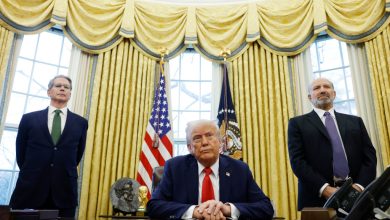Top 5 Mistakes Forex Beginners Make(And How to Avoid Them)

Trading forex can be exciting. But it can also be risky—especially for beginners. Many new traders lose money fast. Why? Because they fall into common traps.
The good news? Most mistakes are easy to avoid once you know what to look out for. This article breaks down five major errors beginners make and how to steer clear of them.
1. Trading Without a Plan
Most new traders start without a plan. They jump in, take trades on gut feeling, and hope for the best. This never works for long. A trading plan is your roadmap. It tells you when to enter, when to exit, and how much to risk. It keeps your emotions in check and stops you from chasing every price move.
Without a plan, you’re guessing. And guessing leads to losses.
Fix it:
- Write down your strategy. Be clear about entry rules, exit targets, and stop losses.
- Set risk limits. A good rule is to risk no more than 2% of your account per trade.
- Backtest your plan on old data. Use a demo account to test it live before risking real money.
2. Risking Too Much
Many beginners think bigger trades mean bigger wins. That’s not how forex works. The market doesn’t care how much you want to make.
The higher the risk, the faster you can lose. One bad trade can wipe out your account if you go too big. This often happens because of leverage. Forex brokers let you control large amounts of money with a small deposit. It feels like free money—but it’s not.
Fix it:
- Use small position sizes. Risk 1–3% of your capital at most.
- Understand how margin works. Know how much of your account is at risk before you place a trade.
- Don’t trade just because you “feel lucky.” Always know the risk before you hit the button.
3. Trading Without Stop-Losses
Stop-losses are not optional. They protect you when trades go wrong—which they will. Many beginners skip stop-losses. They think they’ll close the trade manually “if it goes bad.” But often, they don’t. They hope the price will turn around. It usually doesn’t. Without a stop, a small loss can grow into a large one. This leads to margin calls and empty accounts.
Fix it:
- Always use a stop-loss. Set it before entering the trade.
- Choose your stop based on logic, not fear. Place it where your setup would be wrong—not where it feels safe.
- Don’t move stops to avoid taking a loss. Respect your plan.
4. Letting Emotions Take Over
Trading is a mental game. The chart moves, and your mind races. Fear and greed are the real enemies. You fear losing, so you exit early. You get greedy, so you hold on too long. You chase trades. You take revenge trades after a loss.
All of these come from emotions, not logic.
Fix it:
- Stick to your plan no matter what.
- Accept losses. They’re part of the process.
- Take breaks. Don’t sit at your screen all day, every day.
- Keep your routine simple. The fewer decisions you have to make, the better you’ll trade.
5. Skipping Practice
Many new traders start live trading right away. They don’t test their strategy. They don’t learn the platform. They just go live—and lose money fast.
Trading is a skill. You wouldn’t fly a plane without training. Why trade real money without it?
Fix it:
- Use a demo account. It’s free and risk-free.
- Practice placing orders. Learn how stop-losses and take-profits work.
- Try your strategy. Track how it performs over time.
- Build confidence before going live
Final Tips to Stay on Track
Avoiding mistakes is a big part of becoming a good trader. Here are a few more tips to help you stay focused:
- Keep a journal. Write down every trade. What you saw, how you felt, what worked, and what didn’t. It’s the fastest way to learn.
- Don’t overtrade. Just because the market is open doesn’t mean you should be in it. Wait for clear setups.
- Keep it simple. Don’t chase 10 indicators. One or two tools are enough if you know how to use them.
The Bottom Line
Most beginner traders lose money not because they’re unlucky, but because they repeat the same mistakes. They trade without a plan. They risk too much. They let emotions rule. And they don’t practice.The fix is simple, but not always easy. Start with a plan. Stick to your rules. Respect risk. And take your time. Forex trading isn’t a race. It’s a skill—and skills take time to build.




